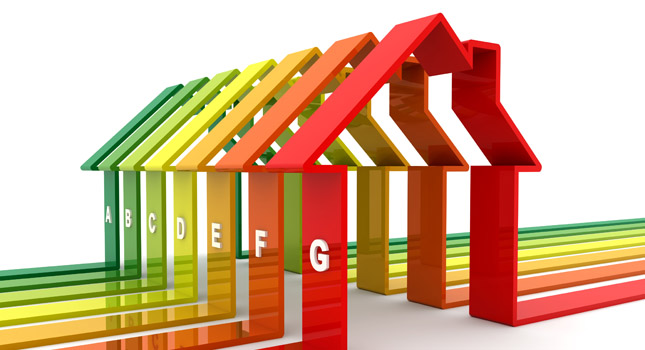

As gale-force winds and freezing rain batter Britain, many householders are reacting to the colder temperatures by cranking up their heating, according to a survey by uSwitch.com. Energy efficiency specialist Peter Thom explains why this is inefficient and costly
The figures are staggering. This latest research suggests 11 million Britons will overheat their homes this winter, together adding at least £1.4 billion to annual energy bills. This is a wake-up call to just how much energy is being wasted in homes up and down the country.
According to the uSwitch.com survey, 25% of consumers in the region of East Anglia will turn up their thermostats to above 21 degrees – higher than the average June temperatures of Barcelona.
These are worrying statistics. Many people wrongly believe that turning up the temperature setting when it’s colder outside will heat up their home quicker, but this just wastes energy and will hike up your fuel bill. The house will heat up to the set temperature - this might take a little longer on colder days - but turning that dial is a costly and unnecessary move.
Moving it up by just one degree can increase your energy bill by 10%, which could mean an extra £60 a year. The Energy Saving Trust recommends homes should be heated at between 18 and 21 degrees.
At the other end of the scale, new figures suggest more than half (54%) of UK adults – the equivalent to 32 million people - plan to ration their heating in a bid to cut fuel bills. With predictions of the coldest winter for 50 years, this could put the health of many – particularly more vulnerable people – at risk.
Fuel poverty is a major problem in this country, especially among those living in rented accommodation, who are often on low incomes. Many are paying much higher bills in an attempt to keep heat-leaking properties warm and suffering poor health as a result of draughty, damp living conditions.
Making sure homes are well-insulated and have a regularly-serviced, efficient heating system will avoid wasting energy, keep occupants warm and fuel bills down.
The Energy Saving Trust estimates draught-proofing your home can save up to £50 on your annual heating bill. This is one of the cheapest and most efficient ways to keep warm air inside, saving both energy and money.
Around 84% of energy used in the home is from heating and hot water, which accounts for about 70% of domestic carbon emissions. So it makes sense to provide this in the most efficient way possible.
Replacing older boilers and heating controls with the latest high efficiency ‘A’-rated boilers and smart controls can achieve system efficiencies close to 100%.
A recent project undertaken by Green Heat, to improve the efficiency of a home in Cambridge, saw such improvements result in savings of more than 60%.
Green Heat replaced the property’s old ‘D’-rated boiler with a new, high efficiency ‘A’-rated gas condensing combination boiler with flue gas heat recovery, which heats up the hot water supply quickly and uses significantly less energy. The original single-glazed windows were also replaced with double-glazed units; and insulation installed in the walls, loft and below the ground floors.
Zoned heating controls with thermostatic radiator valves were also fitted. These enable the temperature to be controlled room by room, which avoids heating whole sections of the house when they’re not being used.
The property previously had a SAP* (Standard Assessment Procedure) score of 45, Band ‘E’, with predicted energy costs for heating, hot water and lighting of £1,502 per year and CO2 emissions of 7 tonnes per year.
After the improvements were made, the energy performance of the home rose to a SAP rating of 77, Band ‘C’, with predicted energy costs for heating, hot water and lighting of just £610 per year and CO2 emissions of 2.5 tonnes per year.
With savings of £892 in energy and 4.5 tonnes of CO2 per year, the overall predicted energy costs and carbon emissions have been reduced by more than 60%.
Peter Thom is managing director of Green Heat
If you'd like to keep up-to-date with the latest developments in the heating and plumbing industry, why not subscribe to our weekly newsletters? Just click the button below and you can ensure all the latest industry news and new product information lands in your inbox every week.